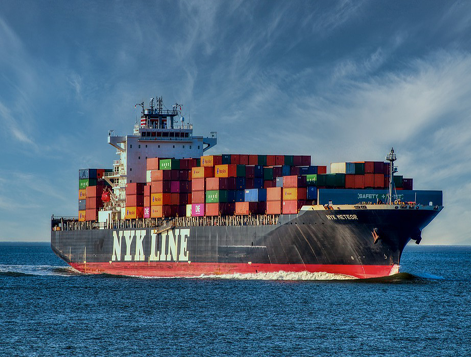Here’s how to ensure your business’ interests stay as profitable as possible…
Recently, Turkish industry has exploded, becoming an excellent manufacture option for many Europeans/British looking for an affordable, high quality source of goods – especially in the wake of the recent Turkish lira devaluation.
However, like any western nation, it’s far from perfect. The first step you must undertake in beginning to source from Turkey is accepting the risks involved – only then can you begin to embrace the innumerable opportunities that come with it.
The good news? It’s incredibly straightforward to manage and reduce any risks with a methodical approach like ours.
Here are some common mistakes that the UK companies make when it comes to sourcing from Turkey and how to circumvent them:

Mistake 1: A poorly defined sourcing strategy
When sourcing goods in Turkey, you must have a well-defined sourcing strategy – including locating the optimal supplier for your needs. Too few small companies do the proper due diligence when sourcing goods: as a result, they’re unlikely to get the best deal in terms of price, quality, functionality, or timely delivery.
Solution:
Create a clear, specific sourcing policy – use these tips to help you:
- Identify suppliers through the Internet, social media, and directories
- Ensure to verify and vet all suppliers
- Find a method of payment insurance/protection and manage quality control to safeguard the long-term future of your start-up
- Decide which sourcing method best fits your needs – examples include direct purchase, using a commission-based sourcing agent, locating a sourcing provider or enlisting a trading company
Mistake 2: Ignoring issues in communication
It doesn’t matter where a product is made – there has to be clear communication between you and your manufacturer.
This communication is the only way to make sure everything goes smoothly – if a language barrier might be an issue, you should employ a translator to prevent any misunderstanding.
You should also define the expected standards from the suppliers – setting out clear expectations in terms of quality, prices and product capacity will certainly increase sales potential later on.
Solution:
- Always define your specifications, standards, requirements and expectations clearly beforehand
- If you are finding it hard to communicate with your supplier during the early interactions, chances are it will only get more difficult from there. Don’t be afraid to drop them and continue to look until you find one with better communication skills
- Never assume the producer fully understands your requirements – things like photographs and diagrams can be exceptionally useful
- Remove any risk of misunderstanding by making your requests as clear and easy-to-understand as possible
Mistake 3: Placing an order without due diligence
Once they decide the products they want to source from Turkey, many companies rush to place an order with the very first Turkey-based supplier they find online – such impulsivity is the costliest mistake a business can make.
Due diligence is vital when sourcing in Turkey, yet almost all companies fail to perform adequate/any research on their suppliers – this can expose your business to a multitude of risks such as fraud, supplier bankruptcy, and poor quality of goods. Even Amazon sellers with strict budget constraints can still perform an informal background check to know more about their supplier before going ahead with the purchase order – so there’s nothing to stop you.
Solution:
Ensure you vet every supplier you wish to buy from – this will increase your chances of finding reliable, good-quality sources.
- Beware of suppliers who ask for 100% upfront payment – these are the most likely to be fraudulent
- Read some online reviews – if you located a supplier on an Internet sourcing platform, you may be able to read reviews from past customers to check for recurring/deal-breaking complaints
- Review supplier websites and follow up by telephone – review the information on the supplier’s website, and then call the number listed and ask for additional information. Some suppliers do not have online presences, but that isn’t necessarily a deal breaker
- Look into the possibility of auditing the business’ facility – even if you have no intention of following through, if the supplier refuses the audit, they may well have something they wish to hide
- Evaluate the documents the supplier can provide to verify their operations – ISO certificates, business licenses and test reports are some of the documents that can demonstrate proof of the legitimacy of the supplier. Issuing bodies can also be contacted to verify certificates
- Alternatively, you may wish to hire a sourcing service provider – these can assist you in vetting suppliers, but you should perform some due diligence on this third party before you employ them: you need to know (and verify) key information including its references, track record, reputation, expertise, and cost
Mistake 4: Overestimating profit margins
Sourcing from Turkey is, after all, an international transaction. Before placing an order, every responsible business considers the cost of the product, the profit margins available and cost of transport. However, new importers often base their pricing on obvious fees such as product cost, logistics, and inspection – but they fail to realise that the cost of product does not equal the total/end cost of a product; even in a simple international transaction, there are several parties involved, each taking their cut, which can significantly eat into potential profits.
Remember – the final import cost per piece is just one of the cost items.
Solution:
To make sure every cost is accounted for, an exhaustive checklist – such as the one below – might be very helpful. You can use this to calculate every cost, and thus calculate your desired price.
Keep an eye on the fluctuating currency rates (or lock the price if possible) and be prepared for emergencies or vital last-minute expenditures
‘Obvious’ items
- Quality Inspection
- VAT and other import taxes
- Banking fees
- Insurance
- Transportation fees (from the seller to the buyer’s door including both parties’ inland transportation)
- Warehouse cost
- Domestic courier expenses
- Marketing cost
- e-Commerce marketplace fees (if applicable)
‘Hidden’ items
- Random customs examination
- The cost of anticipated returns
- Defective, unsaleable products
- The costs of professional product photography

Mistake 5: Not agreeing/signing watertight, written contracts
Written contracts are your lifeline when sourcing from Turkey.
You must understand that the legal structure and agreement enforcement options in Turkey are different than in the UK – oral contracts or invoices may not adequately protect you, and are not considered legally binding in Turkish courts. A detailed, written contract, however, serves as a legally recognised protection of your interests.
Solution:
Always utilise clearly structured, written contracts when making agreements with Turkish suppliers.
Well-written contracts typically include agreements on the following provisions:
- Parties involved
- Terms on samples, price, quality management, logistics
- Definition of product quality, quality satisfaction, timely delivery
- Payment terms
- Liability for breaching contract
- Choice of law
- Dispute resolution
- An arbitration clause
- Solicitors’ fees
Mistake 6: Not recognizing how economies of scale work
Economies of scale are an important concept for any business in any industry and represent the cost-savings and competitive advantages larger businesses have over smaller ones.
Most consumers don’t understand why a smaller business charges more for a similar product sold by a larger company. That’s because the cost per unit depends on how much the company produces. Larger companies are able to produce more by spreading the cost of production over a larger amount of goods – in simple terms, the higher the number of products made, the lower the cost is per single unit for the manufacturer, which is why they will often prefer to produce big orders over smaller ones (where their profits will be smaller, and thus less worth the time expenditure).
Solution:
Be clear about your demands and be patient if your first few searches for a supplier are unsuccessful.
When requesting quotes from Turkish factories, the first question you can expect is about your quantities. The answer to this question influences:
- Whether the supplier will respond to your email
- The quote you get from the supplier (High-Low)
- The quality of service you will get
- Your customization options (White Labelling, Packaging, etc.)
- Your logistics cost per unit
There are factories in Turkey that are set up to handle smaller orders but it may take you time to find one. Be persistent with your enquiries and you should have success. If not, a sourcing agent may know of one or can leverage their relationship with a factory to complete a small order. Negotiation is important, no matter which factory you are dealing with.
Mistake 7: Assuming you can ship defects back to your supplier
Although some suppliers might allow you to do this, the cost of covering the shipping and the time it might take to receive your replacements will be detrimental to your success.
Solution:
- Look into quality control inspection services
- Perhaps fix defects or sell some as discounted seconds to cut your losses
Mistake 8: Lacking a local contact
Doing business with other countries and other cultures can be fraught with danger and is sometimes a logistical disaster waiting to happen. Having someone there in person representing your business will help avoid costly mistakes.
Ideally, this contact would speak fluent Turkish (if your supplier only speaks Turkish; if they are passable in English, this might not be necessary) and be able to assist with quality control inspections and any emergencies with logistics or manufacture. Many business owners believe they can handle the operation remotely, but the value of having a specific contact on the ground cannot be underestimated.
Solution:
Enlist the help of a sourcing service provider like TM Sourcing. Particularly when you are starting out with your importing, it is important to get the guidance and support from the right experts. Failing to do so can expose your business to serious risks including fraud, product quality issues and legal threat.
Conclusion:
Sourcing from Turkey is profitable – by avoiding these common mistakes, you can keep it that way. Successful business handling requires experience, and if you are new to the field, you would benefit immensely with the help of a top-rated sourcing company to help you reap the benefits of Turkish imports.
At TM Sourcing, we are here to help you.